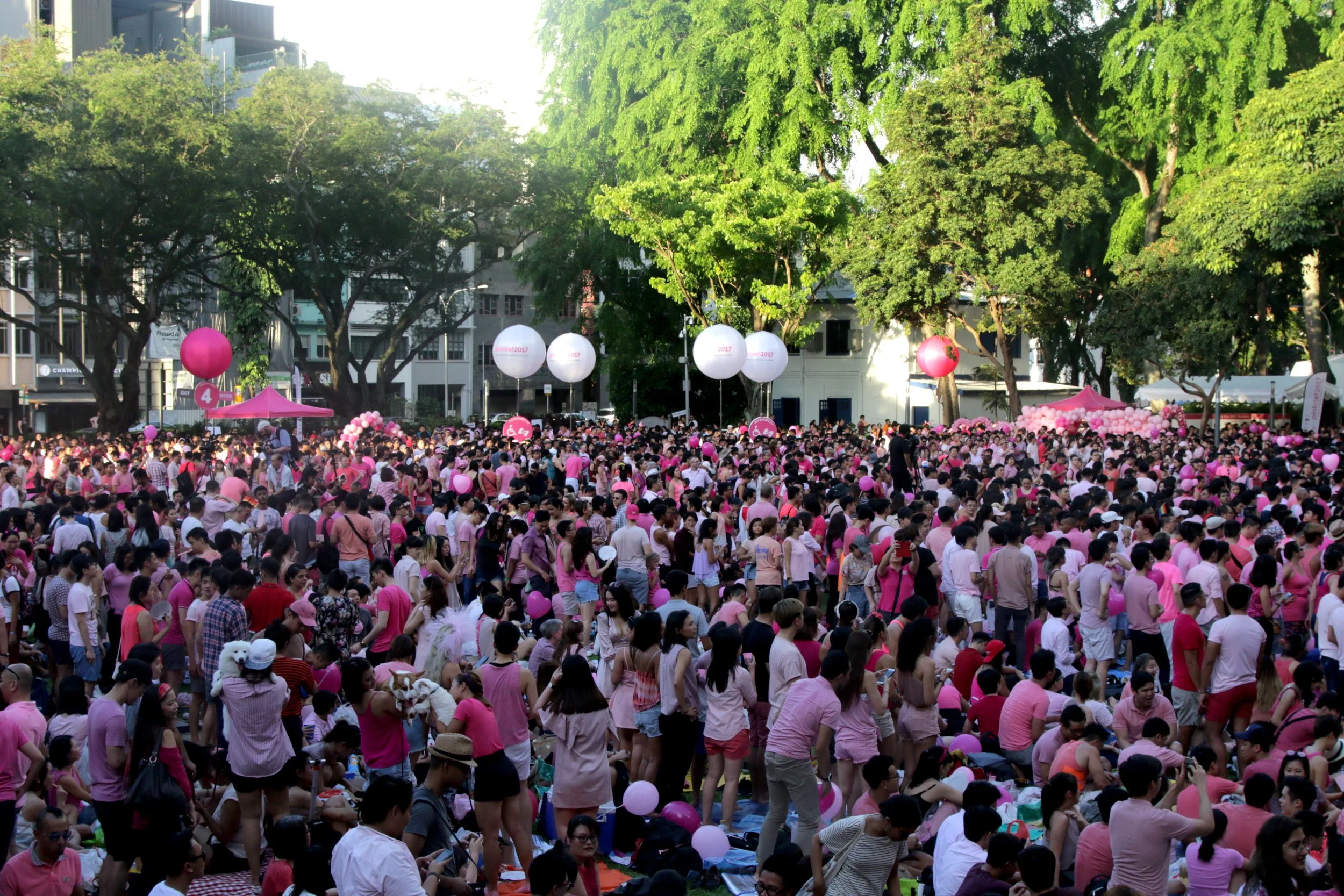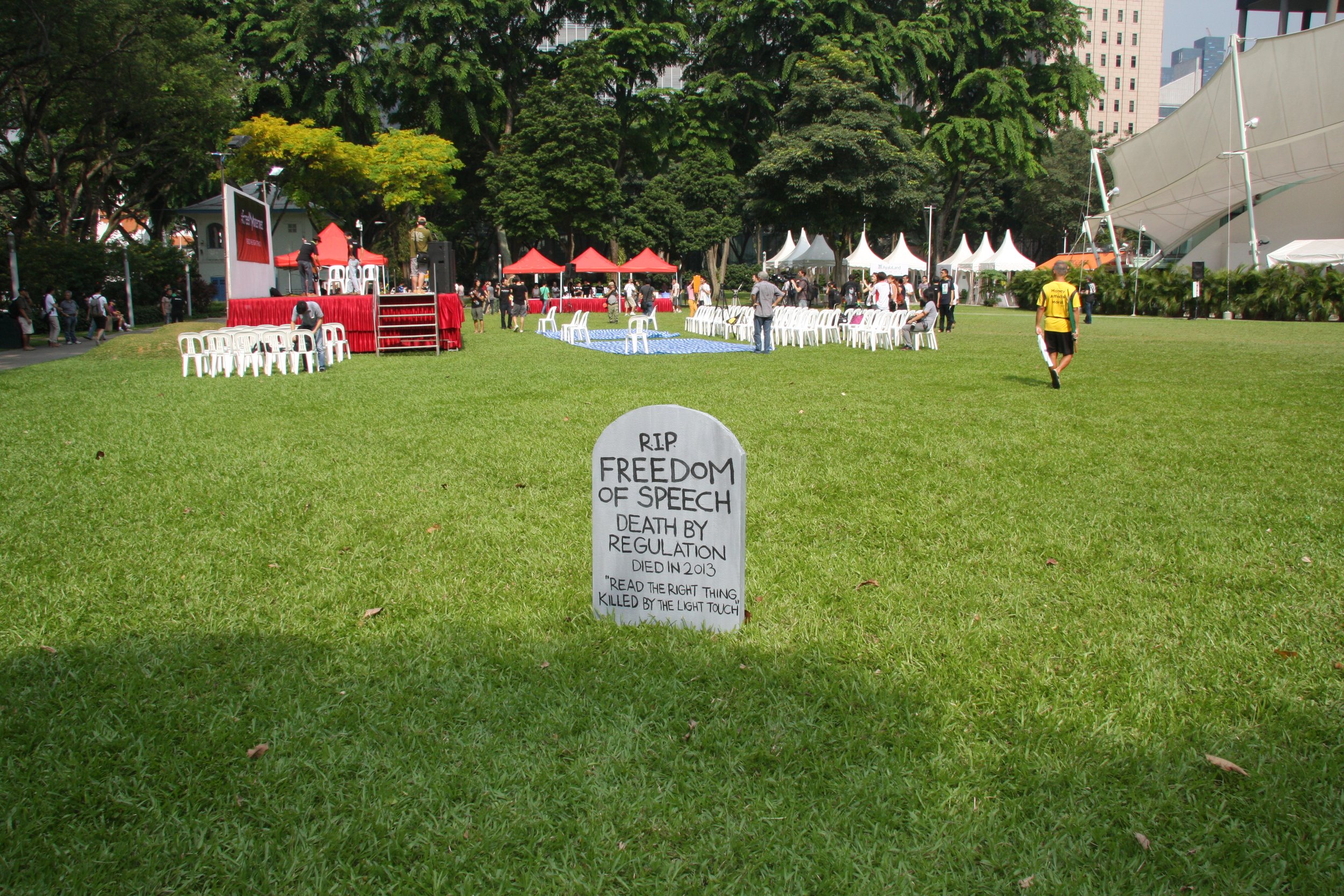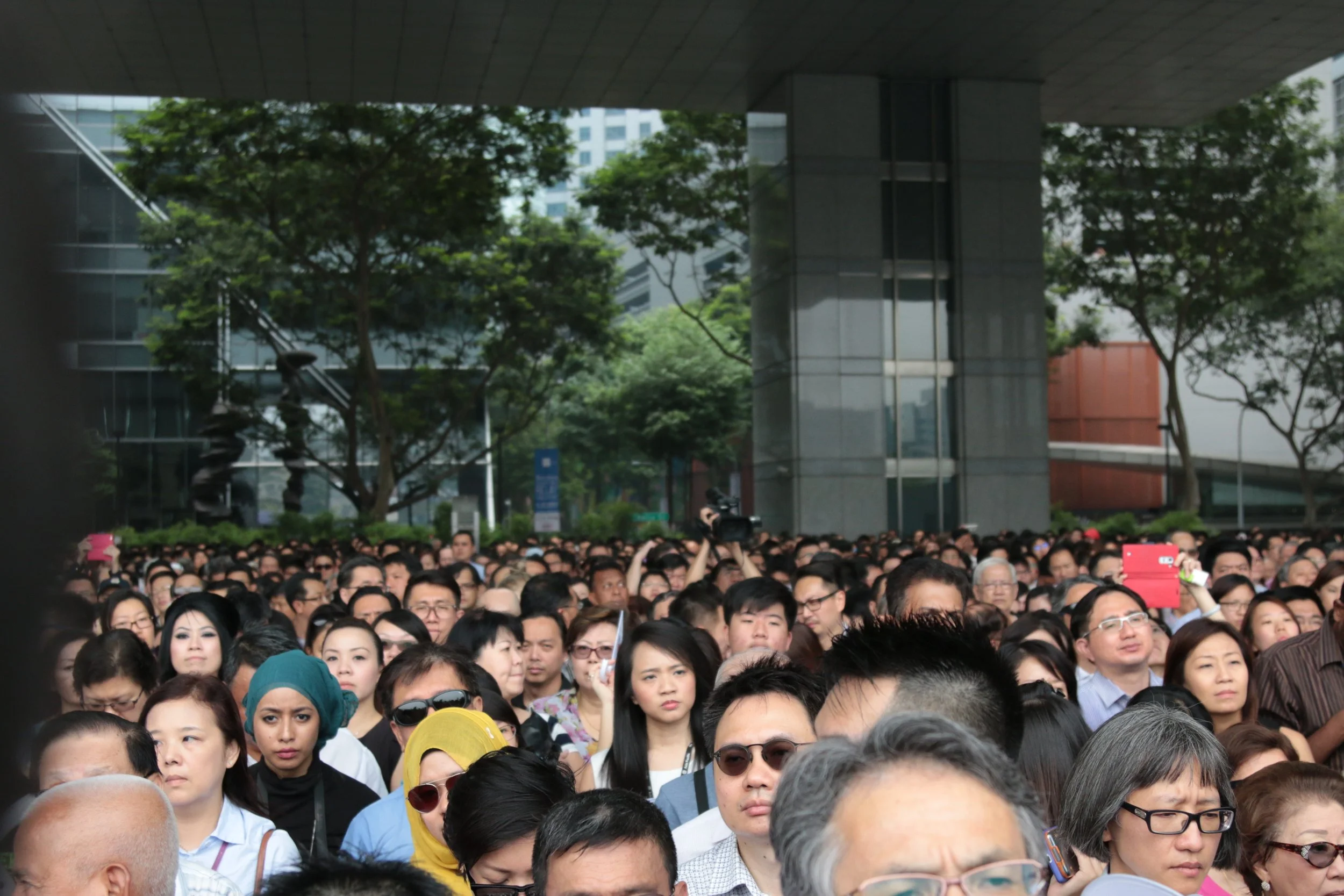
“If in doing the serious work of journalism - digging, reporting, verification, mastering a beat - you develop a view, expressing that view does not diminish your authority.”
- Jay Rosen
People gather in Hong Lim Park on July 1, 2017 for Pink Dot, an annual pride event held in Singapore. 2017 was notable for being the year where people who were not Singaporean or permanent residents were not allowed to join. (Ellis Ng / Mashable)
A mock tombstone which reads “RIP FREEDOM OF SPEECH” is seen at the Speakers Corner in downtown Singapore during a protest against proposed legislation that would require websites with a certain threshold of visitors to register with the Media Development Authority on June 9, 2013. (Ellis Ng for theonlinecitizen)
Philosophies
There’s always been this view that opinions are toxic to journalism, especially in Singapore, from that time a journalist was censured for jumping (allegedly for joy) during a press conference for the opposition party, to attacks on reporting by alternative media just because their volunteer reporters share contrarian views.
Yes, opinions should always be separate from reporting. But it would be better if we knew about a reporter’s opinion and potential biases. Transparency is the new objectivity:
“The problem with objectivity is that it tries to show what the world looks like from no particular point of view, which is like wondering what something looks like in the dark. (…) Transparency gives the reader information by which (they) can undo some of the unintended effects of the ever-present biases. Transparency brings us to reliability the way objectivity used to.“
People listen to a lunchtime rally held by the People’s Action Party in central Singapore on September 8, 2015 (Ellis Ng for Mothership.sg)
I wrote in an earlier edition of my Philosophies page, hosted on an archive of my political commentary, that writing about my views, especially in such an early stage of my career, was scary. It still is. But I want people who somehow stumble upon this page to know where I’m coming from.
In my desire to be transparent - I am an aspiring humanist. An idealist in nature, I stand against discrimination - for I believe being discriminatory towards someone just because of innate differences cannot be tolerated, even under the guise of free speech or nationalism.
I subscribe to equality and freedom; but I also believe that people should take responsibility for the rights and privilege they are accorded by the nature of their birth. This is why I am against nationalism and xenophobia; for one arrogantly assumes we are better and the other arrogantly decides that others are worse. This is also why I am against homophobia and transphobia, for we should not arrogantly determine what is moral and what is immoral.
I believe that key players — corporations, NGOs, governments and political parties — should be held to account by a free and independent press. No wrong should escape me if I do my job well; but if I do something wrong, I will take responsibility for and be transparent about it.
I still remain neutral on a good number of things for which I have little information to ruminate upon.
Finally, I believe that there is a need for us to act when something is wrong. The core idea of objectivity, that we stand aside and observe in a world that can often feel like it is tearing itself into pieces, feels difficult. To quote Jay Rosen again: “If in doing the serious work of journalism - digging, reporting, verification, mastering a beat - you develop a view, expressing that view does not diminish your authority.” I believe acting in service of that view does not diminish my authority either.

